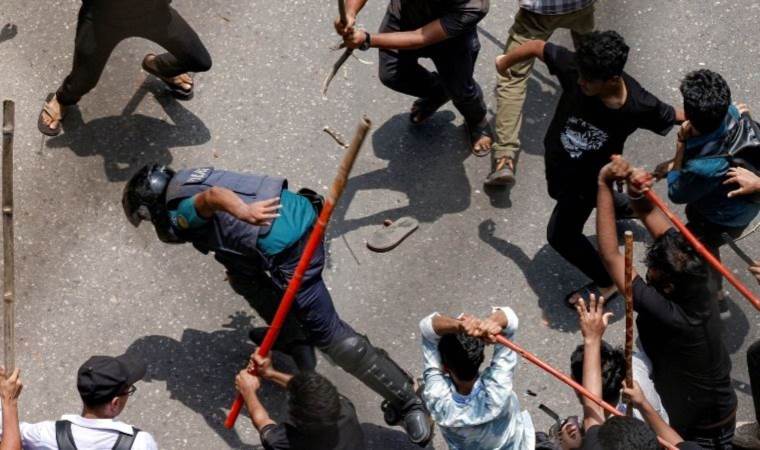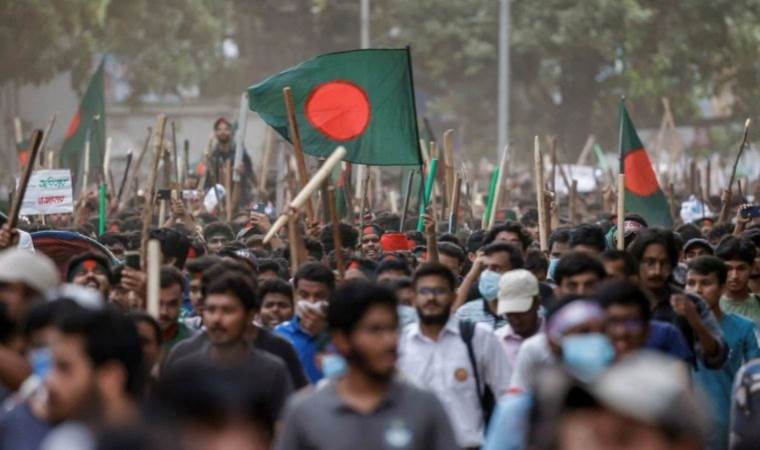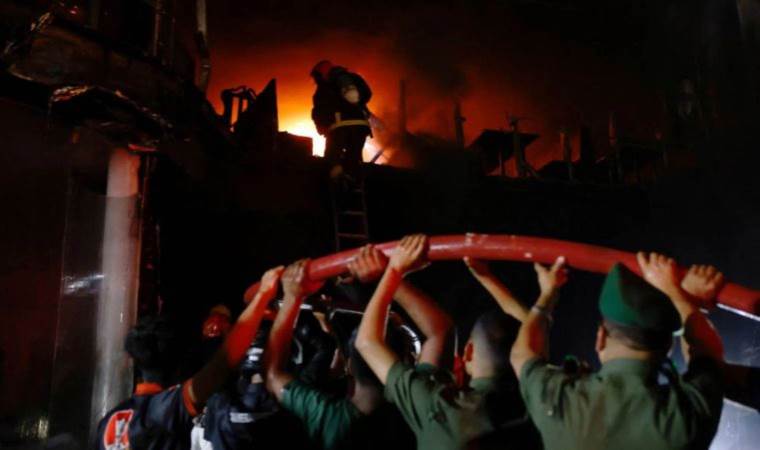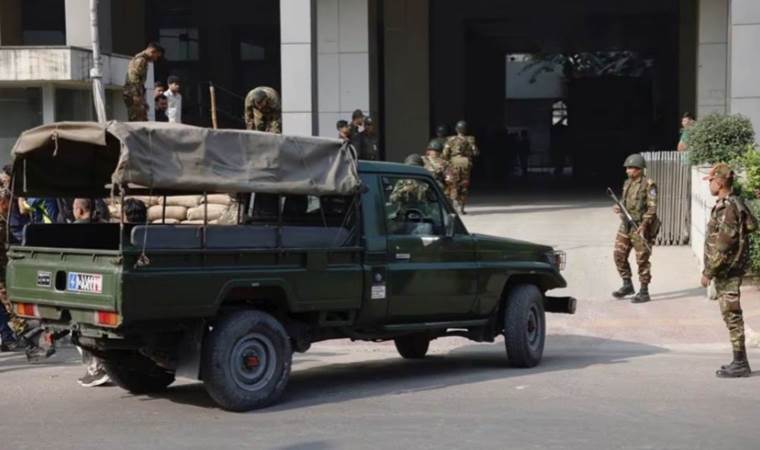Unrest grows in Bangladesh: TV channels cut broadcasts, army deployed
Student protests in Bangladesh have escalated into anti-government demonstrations, paralyzing communication networks and television broadcasts. Authorities have shut down the internet, while clashes between security forces and protesters continue in the streets.

Student protests against quotas in government jobs have intensified, leading TV news channels to cut broadcasts and significantly disrupting communication networks. Violent incidents resurged on Friday in protests that have claimed dozens of lives this week.
According to the French news agency AFP, the death toll from Thursday's violence has risen to 32. Reuters reported that 13 more people were killed this week, adding to the six deaths earlier in the week.
Army Intervention
Violence erupted in several parts of the country on Friday, with police using tear gas to disperse protesters. The Economic Times of India reported that Prime Minister Sheikh Hasina's government had to call in the army on Thursday night to restore order.
While the protests are thought to stem from student anger, some analysts suggest that difficult economic conditions, such as high inflation, rising unemployment, and declining foreign exchange reserves, have fueled the situation.
TV Channels Cut Broadcasts
To quell the unrest, authorities cut some mobile services on Thursday, a disruption that spread nationwide by Friday morning. According to Reuters witnesses in Dhaka and New Delhi, international phone calls mostly failed to connect, and internet-based calls could not be completed. Several Bangladesh-based newspapers' websites were not updated, and their social media accounts were inactive. Only some voice calls were functional, with no mobile data or broadband services available on Friday morning. SMS or mobile-to-mobile text messages were also not delivered.
News TV channels and the state broadcaster BTV were taken off the air, while entertainment channels continued their normal broadcasts. Some news channels displayed a message stating they were unable to broadcast due to technical reasons and would resume soon.
The Political Dimension of Protests
The websites of the Bangladesh central bank, the prime minister's office, and the police were hacked by a group calling themselves "THE R3SISTANC3." The message "Stop killing students" was written in bright red letters, along with "This is no longer a protest, this is a war."
Protesters are demanding an end to the policy of reserving 30% of government jobs for families of those who fought in the 1971 independence war from Pakistan. Hasina's government abolished this quota system in 2018, but the high court reinstated it last month. The government has appealed the decision, and the Supreme Court has suspended the high court's ruling while awaiting a hearing on August 7.
The government expressed willingness to negotiate with protesters on Thursday, but the demonstrators rejected the offer, saying, "Negotiations and firing cannot happen simultaneously." Hundreds of people have been injured this week as police tried to disperse protesters with tear gas and rubber bullets.
Bangladesh has been significantly affected by the aftermath of the Russia-Ukraine war and received a $4.7 billion bailout package from the International Monetary Fund (IMF) in January 2023. In June of this year, the IMF completed the second review of Bangladesh's rescue program, providing approximately $928 million in economic support and about $220 million in loans to combat climate change.




